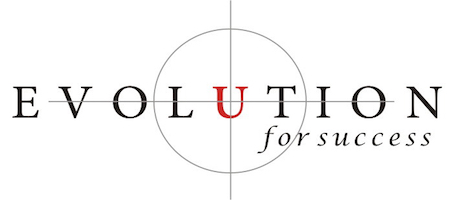Start Out the Year with the Right Mindset
Before you even take a stab at your new year’s resolutions, make sure you have the right mindset.
I read somewhere that 93% of success comes down to your attitude rather than your natural ability. As we start a new year, there are 4 strategies that stand out in terms of starting off the year in the right foot.
1 – Recognize that you have control over your thoughts
It all starts with your mind and the quality of your thoughts. Thoughts pop up in your mind unprompted but thoughts can also be introduced into your mind. Work it from both angles. Be mindful and aware of the thoughts you have, and challenge the ones that are not helpful at moving you closer to your goals. Even if they’re accurate (ie: my boss is a jerk or I’m unhappy with my health), if they’re not helpful, don’t give those thoughts any energy.
Instead, introduce thoughts that are helpful in getting you where you want to go (ie: I can try to do x, y and z to build up my competency and move to a different position ot advance my career. Or I can get rid of the processed foods in the house.)
2 – Make an deliberate effort to notice what you do have
At the end of the day instead of focusing on not having enough time to accomplish everything you wanted to accomplish for instance, take a few minutes to focus on what you did accomplish. Consciously cultivate this glass half full attitude. You want to train your brain to see, not only what is good around you, but also what you are doing right.
3 – Make changes to thrive
Choose to invest in yourself –in your current self of course, but even more importantly in your future self. Make choices and take actions that will benefit your future self. A state of success doesn’t just happens to people. It takes choices, consistent actions and certain sacrifices often in the short term for a potential gain in the long term. Often, forgoing instant gratification will be necessary, but in doing so, you will be creating new habits and behaviors that will create positive results long term.
Don’t just make a plan; write down your goals and keep them in the forefront of your mind. Making a plan is necessary, but it’s only the starting point. It’s crucial but it’s utterly useless if you don’t execute that plan. So decide what you want and spend a small amount of time coming up with a few strategies as to HOW you’ll make it happen, but most importantly, choose to act on that plan.
Keep the planning short, and spend the majority of your time/energy taking actions that will move you forward towards your goal. Focus your energy on the journey. If those actions don’t get you closer to your goals, then you can go back to the strategy portion of the process and adjust or switch strategies. But don’t spend too much time in the planning process; it only delays you moving forward. Most people spend the majority of their time focusing on finding the right strategies. That’s a mistake. Often that’s a complete waste of time. Once you are clear on what you want, taking consistent action towards that goal is where you want to spend most of your focus and energy.
4- Learn to embrace change
Fear always present when we go to do something different and sometimes taking a pause in the midst of change is normal but you have to push through. Don’t let fear stop you in your tracks and prevent you from taking action or from investing in yourself. Don’t let the temporary discomfort that comes with change lead you to put on the breaks. When you’re face with that discomfort, lean hard into taking action, any action no matter how small or seemingly insignificant and stay away from overthinking.

